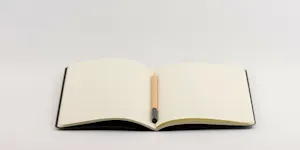What Makes This Word Tick
"Perusal" might sound like a leisurely stroll through a good book, and it's not far off! It refers to the act of reading something carefully or in detail. There's an elegance to the word, suggesting that the information being read is worthy of such attentive consideration.
If Perusal Were a Person…
If perusal were a person, they'd definitely be the thoughtful book club member who always has insightful comments. This person would likely wear glasses, not due to vision issues, but because they just look so erudite with them on. Always armed with a paperback, they're the friend who notices all the details you might have missed.
How This Word Has Changed Over Time
Originally derived from the word "peruse," perusal has maintained its core meaning of thorough examination. In earlier centuries, it might have been associated with legal documents or serious tomes, but modern usage has broadened. Now, one might peruse a menu as easily as a contract, suggesting a bit more casual elegance.
Old Sayings and Proverbs That Use Perusal
While "perusal" isn't front and center in many old-timey wisdom bites, it embodies the spirit of saying like "the devil is in the details." It reminds us that careful attention often uncovers what's easily missed.
Surprising Facts About Perusal
Did you know that despite its somewhat grandiose sound, "perusal" is often misused to mean just a quick glance? True aficionados know it’s all about depth over speed. Plus, the word pair "peruse" and "perusal" is a rare example where the noun gets more action than the verb.
Out and About With This Word
In everyday life, you might encounter "perusal" in libraries, bookshops, or anywhere reading material is savored. It adds a touch of class to any setting, whether it's a humble local library or a mahogany-paneled study.
Pop Culture Moments Where Perusal Was Used
Perusal has popped up in various TV shows and movies, usually used by a character meant to appear particularly astute or verbose. Think of those detective dramas where the protagonist promises to "peruse the evidence."
The Word in Literature
Throughout literature, perusal pairs perfectly with mystery and suspense genres, where characters often find clues buried in the pages of journals or letters. You might imagine Agatha Christie characters frequently engaging in perusal during their sleuthing.
Moments in History with Perusal
Imagine the signing of the Declaration of Independence. While "perusal" isn't noted in historical texts about the event, you can bet those involved in drafting and signing certainly undertook a thorough perusal of every line and clause!
This Word Around the World
In some languages, the equivalent of "perusal" suggests study or scrutiny. In French, it's "lecture attentive," showing that the careful reading aspect of the word transcends linguistic boundaries.
Where Does It Come From?
Tracing its origins back to the late Middle English "perusen," the word entered our lexicon by combining the prefix "per," meaning thoroughly, with "use," hinting that using your eyes thoroughly is key when perusing.
How People Misuse This Word
Many people misuse "perusal" to imply a quick scan, when it actually means to read thoroughly. This misuse might suggest that people wish they had more time to devote to careful perusal!
Words It’s Often Confused With
Skim: Unlike perusal, skimming implies a quick, surface-level read.
Browse: Browsing involves casual looking, quite different from the detail-oriented perusal.
Inspect: While similar, inspection often involves physical attributes, where perusal is strictly about reading or analyzing written material.
Additional Synonyms and Antonyms
Synonyms include "examination" and "review," both suggesting a detailed look. As for antonyms, "ignore" and "neglect" are apt, representing the complete opposite of careful perusal.
Want to Try It Out in a Sentence?
While sipping her morning coffee, Mary engaged in a thorough perusal of the newspaper, ensuring she missed none of the lively weekend updates.
















